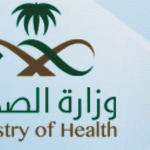 The Saudi Ministry of Health (MOH) has reiterated its plea to people above 65 years of age, those with chronic diseases and with immune deficiency, malignancy and terminal illnesses, pregnant women and children under 12 years of age to postpone Haj and Umrah this year for their own safety.
The Saudi Ministry of Health (MOH) has reiterated its plea to people above 65 years of age, those with chronic diseases and with immune deficiency, malignancy and terminal illnesses, pregnant women and children under 12 years of age to postpone Haj and Umrah this year for their own safety.
The ministry’s advisory comes in the wake of the MERS-coronavirus infection which has claimed the lives of 41 people in the Kingdom so far.
Experts are struggling to understand MERS – Middle East Respiratory Syndrome – for which there is still no vaccine.
To curb the spread of respiratory infectious disease, the ministry advised all intending pilgrims to comply with common public health guidelines like frequently washing hands with soap and water or disinfectant, using disposable tissues when coughing or sneezing and disposing it of in the waste basket, avoiding as much as possible hand contact with the eyes, nose and mouth, avoiding direct contact with people with symptoms of infection such as cough, sneeze, expectoration, vomiting, and diarrhea, wearing masks, and maintaining good personal hygiene.
Quadrivalent (ACYW135) vaccination is required for all citizens and residents of Madinah and Makkah who have not been vaccinated during the past three years, all citizens and residents undertaking Haj, all Haj workers who have not been vaccinated in the past three years, any individual working at entry points or in direct contact with pilgrims in Saudi Arabia.
The ministry recommended that international pilgrims as well the Kingdom’s residents planning to perform Haj should be vaccinated against seasonal influenza.
It also said that in accordance with the International Health Regulations 2005, all travelers arriving from countries or areas at risk of yellow fever must present a valid yellow fever vaccination certificate showing that the person was vaccinated at least 10 days before arrival. In case of the absence of such a certificate, the individual will be quarantined for six days from the date of vaccination or the last date of potential exposure to infection.
Visitors arriving for the purpose of Umrah or Haj or for seasonal work are required to submit a certificate of quadrivalent (ACYW135) vaccination against meningitis.
All travelers arriving from polio-endemic countries and re-established transmission countries regardless of age and vaccination status, should receive a dose of oral polio vaccine.
Proof of polio vaccination at least six weeks prior to departure is required for visitors from polio-endemic and re-established transmission countries to apply for entry visa.
Source: Al Arabiya Channel

















